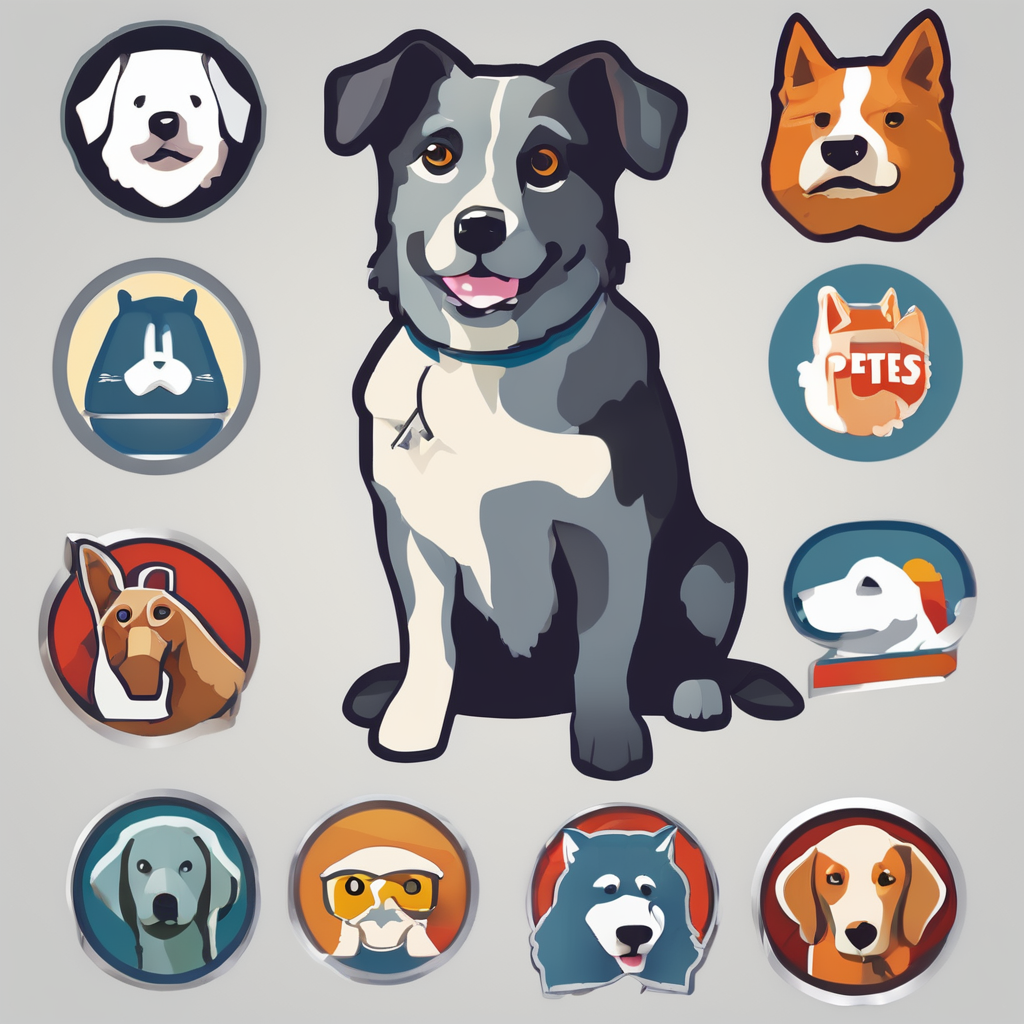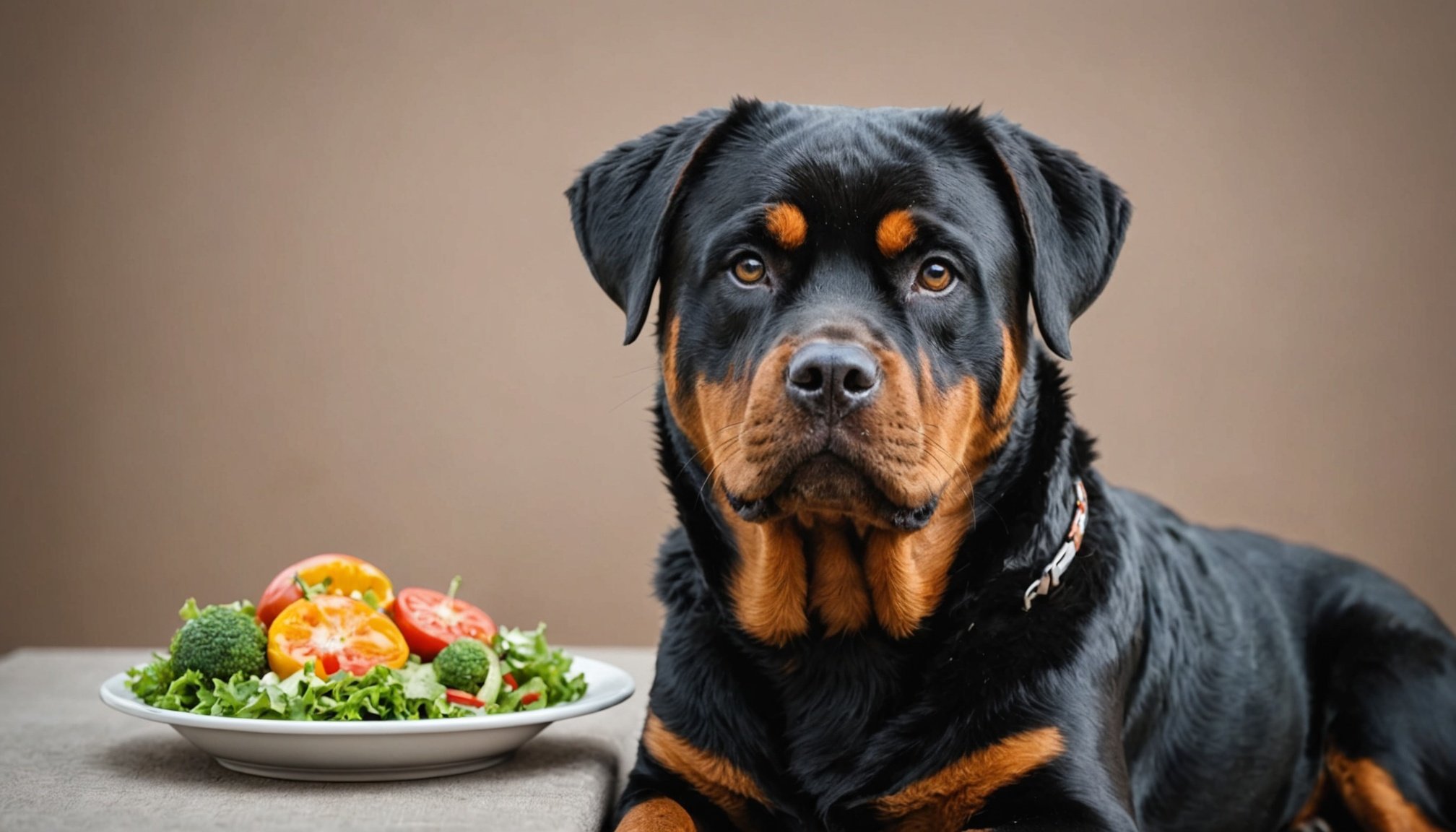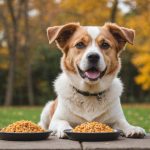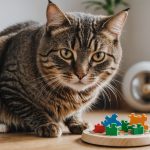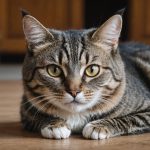Smart Strategies for Maintaining a Healthy Diet for Your Senior Rottweiler and Curbing Obesity
As your Rottweiler ages, their dietary needs undergo significant changes that are crucial for maintaining their health and well-being. Here’s a comprehensive guide to help you navigate these changes and ensure your senior Rottweiler remains healthy, active, and free from the risks of obesity.
Understanding Nutritional Needs for Senior Rottweilers
As Rottweilers age, their nutritional requirements evolve, necessitating adjustments to their diet. Here are the key nutrients and considerations:
Additional reading : How should I adjust my dog’s diet if they are overweight or underweight?
Protein
Protein plays a vital role in maintaining muscle mass, which tends to decline as Rottweilers age. High-quality sources of protein, such as chicken, beef, or fish, are essential for effective digestion and assimilation. Ensuring your senior Rottweiler gets enough protein helps in preserving their muscle health and overall vitality[1].
Fat
Fat is another critical component, offering energy and supporting skin and coat health. However, it’s important to balance fat intake, as excessive fat can lead to weight gain. A balanced diet with the right amount of fat is essential for maintaining your Rottweiler’s energy levels and skin health[1].
This might interest you : Mastering the art of administering oral medications to your stubborn shiba inu: a comprehensive pet owner”s guide
Fiber
Fiber aids in healthy digestion and helps prevent constipation, a common complaint among older dogs. An appropriate fiber intake keeps their digestive system functioning smoothly and efficiently. Including fiber-rich ingredients like vegetables or certain grains in their diet can be highly beneficial[1].
Recommended Food Types for Senior Rottweilers
Choosing the right type of dog food is crucial as your Rottweiler ages. Here are some options to consider:
Wet Food
Wet food offers hydration and easier chewing, making it an excellent choice for seniors with dental issues. It can be particularly beneficial for older Rottweilers who may have difficulty chewing dry food[1].
Dry Food
Dry food promotes dental health but must be formulated specifically for senior dogs to meet their nutritional needs. Ensure that the dry food you choose is designed to support joint health, weight management, and energy levels[1].
Raw Diets
Raw diets can boost energy and coat health but should be balanced and safe, ideally under a vet’s supervision. Raw diets can be a good option if you can ensure they meet all the nutritional requirements of your senior Rottweiler[1].
Importance of Quality Ingredients
Selecting high-quality dog food is essential for your senior Rottweiler’s health. Here are some key points to consider:
- Avoid Artificial Additives and Fillers: Always read labels to avoid artificial additives and excessive fillers. These can be detrimental to your dog’s health and do not provide any nutritional value.
- Look for Omega-3 and Antioxidants: Foods rich in omega-3 and antioxidants support cognitive and joint health, which are particularly important for senior dogs[1].
Recommended Brands
Certain reputable brands cater specifically to senior dog nutrition needs. Here are a few recommendations:
| Brand | Key Features | Suitable For |
|---|---|---|
| Hill’s Science Diet | Formulations designed to maintain vitality in older dogs | Senior dogs |
| Royal Canin | Nutrients tailored for senior dogs to ensure optimal health | Senior dogs |
| Dr. Tim’s Metabolite | High protein, low fat, ideal for senior dogs needing weight loss | Senior dogs, especially those needing weight loss[1][3] |
When choosing food, it is crucial to consult your veterinarian to tailor specific dietary requirements for your senior Rottweiler.
Tips for Preventing Obesity
Maintaining a healthy weight is critical for your senior Rottweiler’s overall health. Here are some strategies to help prevent obesity:
Avoid Overfeeding
Measure your dog’s meals carefully and consider their daily caloric needs to prevent excess weight gain. Avoid indulging in high-calorie treats, and instead, opt for healthy alternatives[1].
Training and Behavioral Modification
Training your dog not only mentally stimulates them but also contributes to their physical well-being. Engaging in activities like fetch or agility exercises can burn calories and maintain weight.
Healthy Dog Habits
Regular exercise helps in maintaining a proper weight and bolsters overall health. Walks, playtime, and structured training sessions should be part of their routine. Recognize the signs of potential weight-related issues, such as difficulty moving, heavy breathing, or noticeable fatigue, and consult your veterinarian for tailored weight management plans[1].
Practical Meal-Planning Advice
Creating a balanced diet for your senior Rottweiler is crucial for maintaining their health and vitality. Here are some practical tips:
Assess Current Health Status
Begin by assessing the current health status of your Rottweiler and consult with your vet to tailor meals accordingly. This ensures that their nutritional needs are met, promoting longevity and well-being[1].
Gradual Diet Changes
Transitioning between different diets should be approached with caution to avoid digestive issues. Gradual changes over a week are advisable; start by mixing small amounts of new food with the old and increase the ratio gradually. This method helps your pet adjust without causing stress to their digestive system[1].
Incorporate Variety
Incorporating variety while maintaining a balanced diet is both possible and beneficial. Consider alternating between different protein sources like chicken, beef, or fish to keep meals interesting. Ensure each new ingredient supports a balanced diet and fits within their feeding routine. Use additional ingredients like vegetables or grains to provide necessary nutrients and enhance meal diversity, but always in amounts appropriate for their dietary needs[1].
Additional Strategies for Weight Loss
If your senior Rottweiler needs to lose weight, here are some additional strategies:
Focus on What’s in Their Food
The quality of the food matters significantly. Switching to fresh whole food options with human-grade veggies and protein can help. For example, the JustFoodForDogs Fish & Sweet Potato recipe allows you to feed your dog a larger volume of food that is lower in calories and fat, helping them feel satiated[4].
Scale Back on Treats
Treats should make up no more than 10% of your dog’s daily calorie intake. Eliminate high-calorie treats and replace them with healthy alternatives or non-food rewards like extra pets, attention, or playtime[4].
Increase Exercise
Feeding the right diet with fewer calories is primary, but exercise is also crucial. Adjust your dog’s diet and make up for any food restrictions by adding more walks, trips to the dog park, games of fetch, and other physical activities into their daily routine. Even small changes, like moving their feeding station to another part of the house, can motivate them to move more[4].
Sample Meal Plan and Comparison
Here’s a sample meal plan comparison to help you make informed decisions:
| Food Type | Main Ingredients | Protein Percentage | Fat Percentage | Suitable For |
|---|---|---|---|---|
| Wellness Core Weight Management | Fresh chicken, pork liver, whitefish | 50% | 16% | All adult dogs, weight loss[3] |
| Dr. Tim’s Metabolite | Chicken meal, brown rice, whole oat groats | 33% | 11% | Senior dogs, weight loss[3] |
| Open Farm Gently Cooked Harvest Chicken | Human-grade fresh chicken, carrots, kale | 37.5% | 29.2% | All adult dogs, weight loss[3] |
| Merrick Grain Free | Fresh beef, chicken meal, sweet potatoes | 36% | 11% | Large breed dogs, weight loss[3] |
Quotes and Insights from Experts
- “Prevention is key, especially for certain breeds that have the propensity to have health issues related to obesity,” says Dr. Wilson. “If you can prevent your dog from becoming obese, then hopefully we can keep that pet active and pain-free throughout their lives.”[4]
- “Kibble diets tend to be a bit more calorically dense,” notes Dr. Wilson. “If you’re trying to do a weight loss plan by only feeding kibble, you may have to restrict the volume of kibble and then your dog is just hungry all the time.”[4]
Maintaining a healthy diet for your senior Rottweiler is a multifaceted task that requires careful consideration of their nutritional needs, the quality of their food, and their overall lifestyle. By understanding the specific dietary requirements of your senior Rottweiler, selecting high-quality food, and implementing strategies to prevent obesity, you can significantly enhance their quality of life.
Here are some final tips to keep in mind:
- Consult Your Vet: Always consult with your veterinarian to tailor specific dietary requirements for your senior Rottweiler.
- Monitor Weight: Regularly monitor your dog’s weight and adjust their diet and exercise plan accordingly.
- Provide Mental Stimulation: Training and mental stimulation are as important as physical exercise for maintaining overall health.
- Stay Consistent: Consistency in diet and exercise is key to maintaining a healthy weight and overall health.
By following these strategies and staying informed, you can help your senior Rottweiler live a long, healthy, and happy life.
